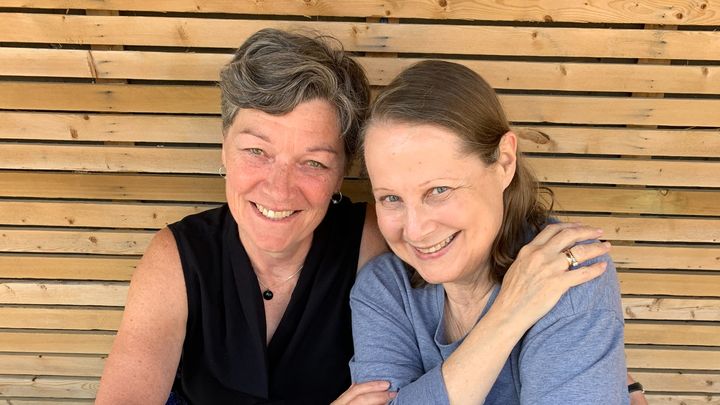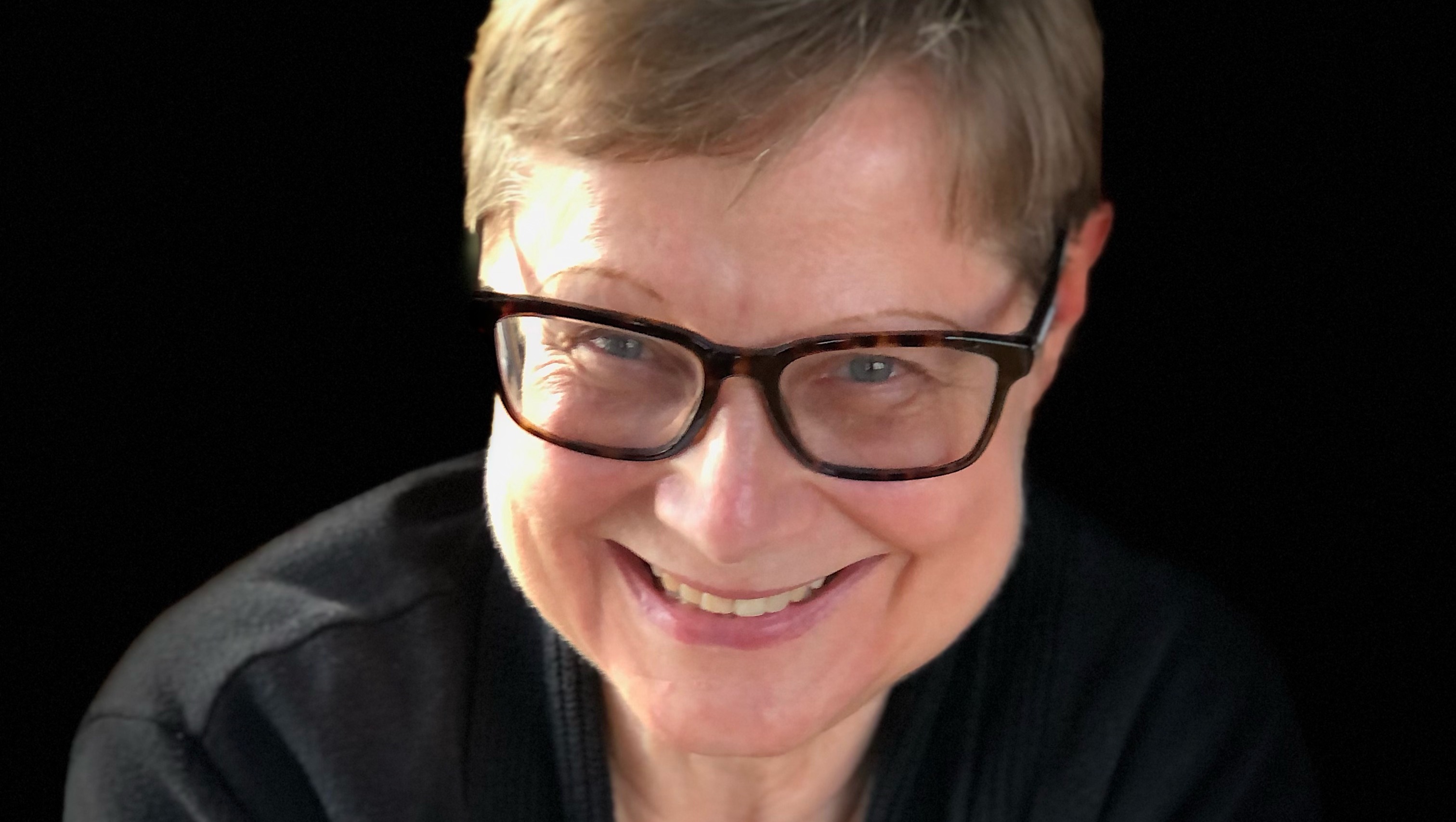
Louise Mangan Campaign of Care
THE INVITATION: As many of you will know, the Mangan/Shorten family and community were shocked and concerned when Louise was diagnosed with Stage 3 colon cancer in May, 2020. Since then, Louise and Liz have appreciated the caring and help of many friends -- dropping off food, driving Louise to appointments (masks on), and listening compassionately to the stories of the journey, so far.
Now we are offering one more important way to participate in the healing process, for those moved and able, by contributing financially. Two friends, Tracey Friesen and Jai Djwa, are coming together with Louise and Liz's permission to launch a ‘Campaign of Care’. The goal is to raise upwards of $50,000, which is roughly half of the out-of-pocket expenses to date.
Since diagnosis, Louise has had two surgeries to deal with an aggressive cancer. Because an attempt at chemotherapy proved dangerous last summer, Louise's course of care has centred on naturopathic oncological treatment and private testing. She has been receiving treatment multiple times per week at a well-regarded clinic in Port Moody for over a year. The results now look very promising.
Unfortunately, this complementary approach is not covered through work benefits programs, medical plans, or BC Cancer. Private costs incurred to date have now exceeded six figures, dipping well into lifelong savings and with no clear end in sight. This feels like the right time to extend an invitation to the wider community for support…
Through all of this, everyone is so thankful that Louise has mostly been feeling quite well. She and Liz – and Rosie! - get out for walks along the ocean most days, from their current home in Vancouver's beautiful West End.
If you would like to learn more details about the diagnosis, remedies and current hopeful status, please see the longer story BELOW.
Many thanks, from friends Tracey and Jai

THE FULL STORY: "Louise and Liz have learned a lot about colon cancer, starting with the importance of timely testing, treatment and surveillance. When identified and removed while still contained within the colon, most colon cancers are cured by surgery alone. Despite the good intentions of the BC healthcare system, diagnosis for Louise was delayed for four months by referral wait-times and the COVID-19 lockdown. By the time of Louise’s initial surgery in June, the cancer had invaded surrounding tissues outside the colon as well as small vessels of the lymph system. So, in addition to the primary tumour, one of the regional lymph nodes that was excised during surgery tested positive for invasive cancer, Stage 3B.
While a long and healthy future can still be possible at Stage 3B, delayed access to care affected Louise’s diagnosis and prognosis in ways that worsened the challenges of treatment. To orchestrate public cancer care, BC Cancer Agency works carefully within the cancer “staging” system of the international standard of care. Staging links specific cancers at each stage of progression with normative chemo regimens and specified patterns of surveillance. The strength of this standardization is its capacity to make known remedies consistently available at scale. The weakness of the staging system is its inflexible response to the uniqueness of each person and each cancer. In Louise’s case, it was quickly clear that both Louise and her cancer are unique in ways that change what is needed.
Once the primary tumour has been surgically removed, the key concern for patients at “curable” Stage 3 is the risk that the cancer will recur and advance to Stage 4. Colon cancer that’s already spreading at the time of surgery typically progresses, and the risk of spread is heightened by the involvement of one or more lymph nodes. With every recurrence, residual cancer cells mutate more aggressively to promote growth and spread, and to strengthen resistance to treatment. This is why most people with advanced colon cancer will die from the spread of cancer through their body. Stage 4 colon cancer has invaded distant organs and is generally considered to be terminal.
By the time of her surgery, Louise was at the low-risk end of her Stage 3 category in some helpful ways. With or without chemotherapy, a subset of patients in Louise’s situation DO survive long-term and tumour-free. An otherwise healthy person with colon cancer that’s been surgically removed from a single site, with clear surgical margins and just one positive lymph node, can reasonably expect to survive it. Fortunately, Louise met these criteria after surgery. So, with her anti-cancer diet, healthy weight, regular exercise, and contemplative practice, the Mangan/Shortens were relieved to realize that Louise could be among the survivors. She was doing all the things that she could do.
Nonetheless, one particular uniqueness with regard to treatment options posed a major problem right away. To minimize the threat of recurrence and progression, Louise’s doctors all agreed that a preventive course of adjuvant chemotherapy should begin soon after surgery. Unexpectedly, by just nine days into her first cycle of chemotherapy, the intense reactivity of Louise’s major body systems to the chemo drugs made it obvious to all that further chemotherapy would be unviable. Then, even more unexpectedly, with chemo drugs removed from the anti-cancer arsenal, Louise’s oncologist at BC Cancer advised that all the agency could offer Louise was “routine surveillance.”
Because preventive chemotherapy had been so strongly advised -- and because the staging guidelines for imaging surveillance (CT, MRI and PET scans) presume the benefits of chemotherapy -- Liz and Louise wondered if routine surveillance alone would be sufficient. They grew even more concerned when Louise found a recent major study which concluded that, for patients with colon cancer at Stage 3B, a pattern of surveillance more intensive than “routine” significantly decreased the time to detection of recurrences, and significantly increased the frequency of successful treatment outcomes. By implication, the level of surveillance that BC Cancer offered was not optimal for Louise, and optimal surveillance enhances the probability of survival.
Liz and Louise decided then that a more personalized approach to risk assessment and treatment options would be important, to help ensure they could arrange for the care most appropriate to Louise’s needs. Their family doctor referred them to an “integrative oncologist” who had retired from BC Cancer and returned to private practice to provide a personalized approach to treatment for patients who need more options than chemotherapy. When it was clear that Louise couldn’t benefit from chemotherapy, her integrative oncologist asked the original pathologist for detailed information that the post-surgical report had not included. He explained to Liz and Louise that he wanted the specifics of the pathology of the cancerous lymph node to inform his recommendations re: next steps. On learning from the pathologist that the disease in the affected lymph node had been noted as aggressive, he advised Liz and Louise that -- especially without chemo -- finding “innovative” adjuvant therapies for Louise could be lifesaving. And he specifically affirmed the preventive, anti-cancer and immune-supportive capacities of oncologic naturopathy to address Louise’s particular needs.
Given the aggressive pathology of the cancerous lymph node, the integrative oncologist also advised intensified surveillance. When unexplained spots showed up on a routine CT scan, Louise’s oncologist at BC Cancer followed regular staging guidelines and suggested that the scan be repeated in three months’ time, to see if the spots had expanded to reveal advancing cancer. The integrative oncologist reasoned that a three-month wait for a second scan could give an aggressive cancer too much time for further spread, so Liz and Louise paid for an immediate PET scan. The PET scan results (followed by colonoscopy) did indeed detect an early local recurrence of Louise’s cancer, confirming what the original pathologist had observed. This recurrence was quickly removed by a second surgery, early enough that no spread was found.
After Louise’s second surgery, the search for adjuvant therapies that Louise’s body could tolerate was continued by both her integrative oncologist and her naturopath. Louise’s genomic profile was analyzed, as was the molecular profile of the cancer. Louise and Liz were aware that innovative non-chemo targeted therapies are available to certain colon cancer patients through the BC Cancer Agency. Used with or without the chemo drugs of standard oncology, “precision” oncology inhibits the spread of cancer with personalized combinations of biological and immune-supportive drugs, targeted to each patient’s genomic needs and responses to treatment, as well as the molecular profile of their cancer. These targeted therapies have been especially helpful for Stage 4 patients whose disease has become resistant to chemo.
Back when they learned that Louise could not take chemo drugs, Liz and Louise initially hoped that the targeted therapies available to Stage 4 patients could also be used for Stage 3 patients who need alternatives to chemo. They were dismayed to find out that all the clinical research on using targeted therapies to inhibit the recurrence and advance of colon cancer has involved only patients at Stage 4. In the absence of clinical data to legitimize preventive and/or curative use at Stage 3, targeted alternatives to adjuvant chemo are exclusively reserved for colon cancer patients at Stage 4. Ironically, for curable Stage 3 patients like Louise, BC Cancer Agency offered no treatment options (aside from chemotherapy) with which to prevent recurrence and progression or seek an actual cure. For Louise, who descends from two family lines of doctors and nurses, lack of early access through the healthcare system to a range of preventive therapeutic options was profoundly disappointing.
Fortunately, however, the Mangan/Shortens did discover that oncologic naturopathy has itself emerged as an integrative and complementary mode of precision oncology. In the absence of pharmaceutical funding for large clinical trials, clinical records, observational studies, and first-hand reports of patients around the world affirm the same effectiveness of naturopathic therapies that Louise has experienced first-hand. For the past year, her naturopathic clinic has facilitated the testing, monitoring and preventive treatments that she needed, to revitalize her immune system, reverse inflammatory processes, and restore her chemo-injured central nervous system, while targeting and silencing mutated and mutating oncogenes.
Thankfully, since the middle of June, Louise has been enjoying steady progress toward “No Evidence of Disease.” With all advisors in agreement that she should continue what is working so well, Louise’s naturopathic testing, monitoring and treatments should carry on for several more months. Liz and Louise are thankful for all of Louise’s care providers, and especially appreciate that all Louise’s doctors have respected her integrative choices.
Since neither naturopathic clinicians nor their patients receive any government subsidies, the personal cost to Louise and Liz of private medical and naturopathic testing, monitoring and treatments has already exceeded $100,000. They have nearly exhausted their capacity to borrow funds for Louise’s continuing care, and are at last allowing friends to organize more formal support."